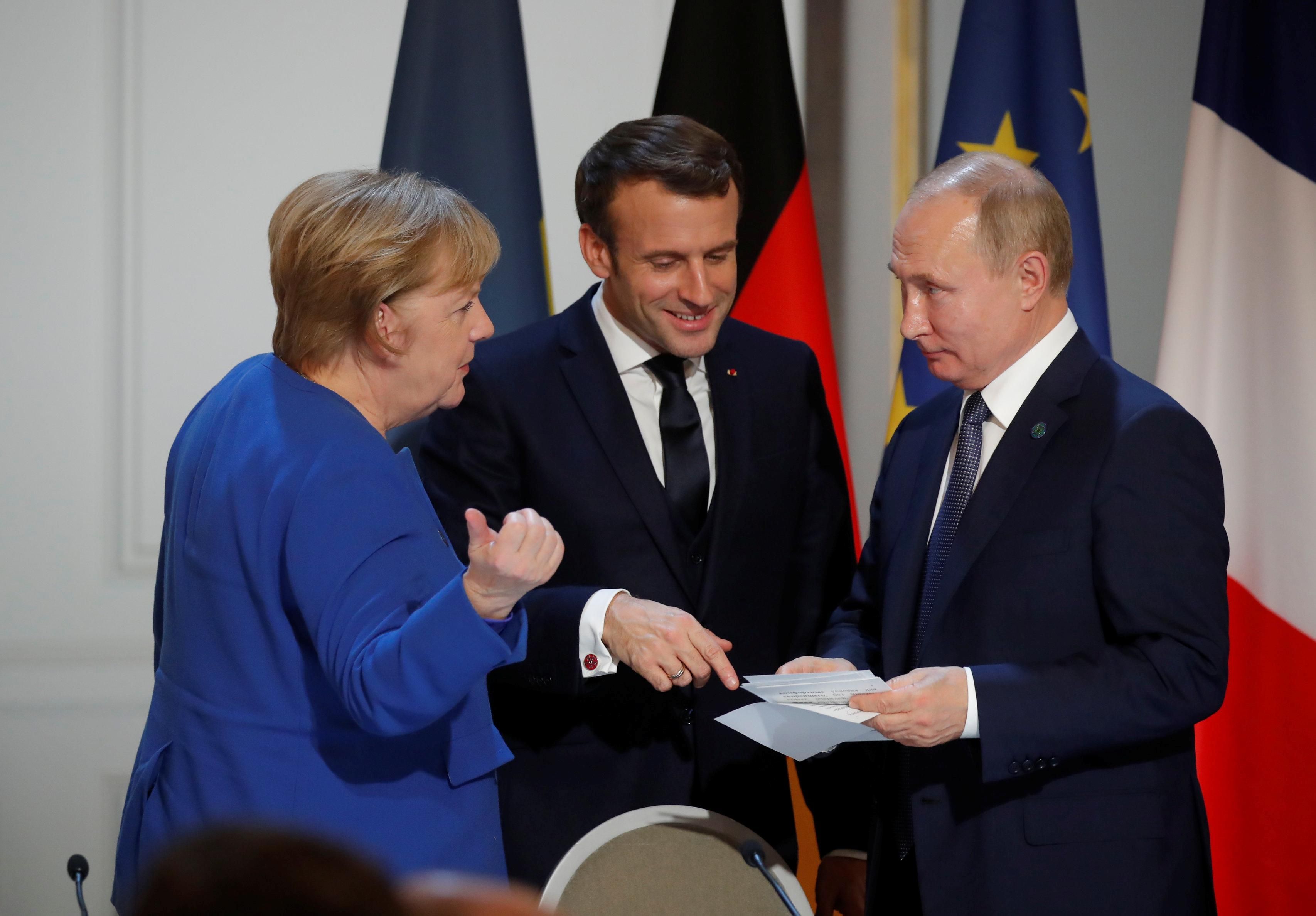News
May 27, 2021
Russia wades into EU-Belarus row: Now that the European Union and Belarus are at loggerheads over the brazen hijacking of an EU flight to arrest a dissident journalist, Vladimir Putin wants a piece of the action. In response to Brussels encouraging EU airplanes to avoid Belarusian skies, Russia says it will block those airlines from Russian airspace. It's unclear whether Putin is doing this to support his frenemy, Belarusian President Alexander Lukashenko, or to sow division within the bloc after it approved unusually swift, albeit limited, sanctions against Belarus. Putin may be guessing that Brussels won't go much further because the EU is dependent on Russian oil and gas that transits through pipelines in Belarus. Either way, Putin's move will likely put more pressure on the EU to decide whether it doubles down on tougher sanctions against Lukashenko, or backs off a bit. And it demonstrates that Russia's leader, channeling his inner Rahm Emanuel, never lets a good crisis go to waste.
Biden warns on Tigray war: US President Joe Biden has called for a cease-fire in the brutal ongoing conflict between Ethiopian government forces and separatist fighters in the region of Tigray, calling out "large-scale human rights abuses." The statement came a day after the UN warned of famine in the region, and three days after Washington cut aid to Ethiopia and imposed travel restrictions on combatants on both sides of the war. Ethiopian Prime Minister Abiy Ahmed is facing growing international scrutiny over allegations of war crimes and ethnic cleansing campaigns carried out by government forces and allied fighters from neighboring Eritrea. Abiy's government, which has repeatedly cut internet service and obstructed free reporting in Tigray, denies the charges and has threatened to "re-assess" its relationship with long-time ally Washington. Does the Biden administration really have the will and the leverage to stop the violence?
Hong Kong approves China's political shake-up: Hong Kong's legislature has passed sweeping electoral reforms just two months after Beijing proposed a massive overhaul of the city's political system. Under the new laws, the number of parliamentary seats will be expanded by 20 to 90, but less than a quarter will now be directly elected by Hong Kongers. Moreover, the new law also sets up committees to vet legislative candidates, ensuring that those who want to serve are sufficiently "patriotic" for Beijing. This political overhaul comes in the wake of the passage of a draconian national security law last year, as well as a series of bills in recent months that further erode Hong Kong's remaining democratic characteristics. Importantly, these developments make it all but impossible for pro-democracy candidates to even sit in the legislature, let alone significantly influence the city's politics as they had for decades.
From Your Site Articles
More For You
Chris, an Army veteran, started his Walmart journey over 25 years ago as an hourly associate. Today, he manages a Distribution Center and serves as a mentor, helping others navigate their own paths to success. At Walmart, associates have the opportunity to take advantage of the pathways, perks, and pay that come with the job — with or without a college degree. In fact, more than 75% of Walmart management started as hourly associates. Learn more about how over 130,000 associates were promoted into roles of greater responsibility and higher pay in FY25.
Most Popular
- YouTube
A ceasefire in Ukraine could be a strategic trap, leaving Kyiv vulnerable, former NATO ambassador Ivo Daalder warns on GZERO World.
Members of the special units of the National Guard and the Secretaria de Seguridad Ciudadana stand guard in front of the Fiscalia General de la Republica, where the investigation into the operation in which Nemesio Oseguera Cervantes, alias "El Mencho", founder and leading head of the Cartel de Jalisco Nueva, was killed, is underway.
Félix Márquez/dpa via Reuters Connect
- YouTube
In this Quick Take, Ian Bremmer warns that US military strikes on Iran are “looking increasingly imminent” as diplomacy appears to stall.
© 2025 GZERO Media. All Rights Reserved | A Eurasia Group media company.
